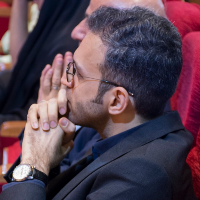The Psychological Mechanism Underlying Internet Addiction on couple burnout: The Mediating Role of Covert Relational Aggression and Marital Relationship Quality
Couple burnout, as a traumatic phenomenon in couples' interactions,can disrupt and separate the focus of the relationship, leading to undesirable consequences. It is therefore important to investigate the factors that influence it. Based on this,the aim of the present study was to determine the mediating role of marital relationship quality and covert relational aggression in the relationship between Internet addiction and couple burnout.The current research is a descriptive study conducted on 337 married women in Tehran in 1402. Participants were selected using the accessible sampling method.Research data were collected using questionnaires on couple burnout (Pines;1996), covert relational aggression (Nelson& Carroll;2006), internet addiction (Yang; 2009), and relationship quality scale (Chonody and et al.; 2016). Data were analysed using Pearson correlation and path analysis. The results of mediation analysis showed that the direct effect of Internet addiction on couple burnout was significant (β=0.210; p=0.000).The indirect effect of Internet addiction on couple burnout was significant both through Covert Relational Aggression and through the quality of the couple's relationship (β=0.039;p=0.002andβ=0.128;p=0.002,respectively).Therefore,Covert Relational Aggression and marital relationship quality had a partial mediating role in the relationship between Internet addiction and couple burnout.The results of this research may be useful to mental health researchers and therapists by extending theoretical concepts in the field of couple therapy and providing new insights into the complexity of relationships. In addition, from a practical point of view, it can be used as a basis for the design of interventions for the improvement of couple relationships.
-
The Effect of Analytical Metacognitive Therapy on Reducing Residual Anxiety and Depression of Nurses in Covid-19 Wards
Rahim Shahbakhsh *, Ali Soleimani, , Hojatollah Farahani
International Journal of Behavioral Sciences, Autumn 2024 -
Structural model of self-ambivalence and reassurance-seeking with obsessive beliefs with the mediating role of fear of self
Kimia Najafi, *, Malek Bastami Katuli
Rooyesh-e-Ravanshenasi,



